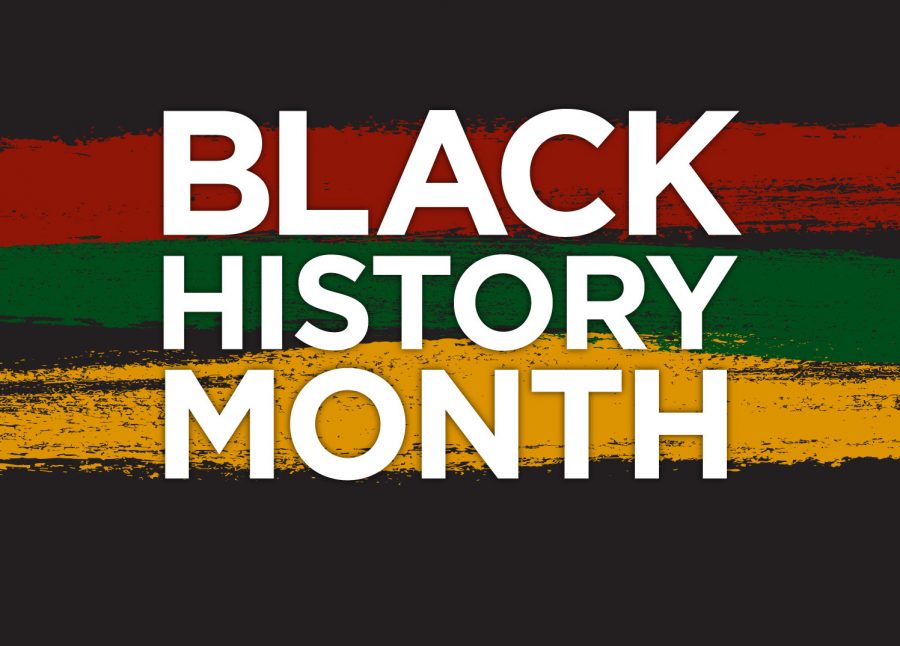Maria Montero Silva, Editor-in-Chief
The legacy of African American individuals who have contributed to history, science, humanities and art is acknowledged during the month of February across the nation.
Black History Month started as a weekly celebration in 1922 by Carter G. Woodson, a historian and academic who sought to professionalize black history after realizing that blacks had been excluded from history books.
February was chosen as the month to celebrate black history as it coincided with the birth of Abraham Lincoln, who signed the Emancipation Proclamation that freed the slaves, and Frederick Douglass, a former slave who became the primary leader of the abolitionist movement.
Since 1976, Black History Month has been officially observed in the United States and other countries such as Canada and the United Kingdom.
According to Professor of History and Africana Studies Clemmie Harris, understanding black history is important, but not just from the standpoint of Black History Month but because it is integral to understand the expansion and globalization of Western power, racial capitalism through slavery, imperialism, colonialism and white supremacy.
“When we think about black history it becomes an important lens to help us understand the expansion of a Euro-American global history,” Harris said. “We are also seeking to reinsert black people into a historical narrative that since the early 19th century only recognized Europeans and by extension, Americans.”
According to Harris and the teachings of other scholars and academics of black history, the world has taught a version of history that has operated off of a “type of racial purity that marginalizes and excludes the types of cultural diversity that existed in the ancient world.”
For some, Black History Month is just another celebration with no other significance than its symbolic meaning. For others such as seniors Gianna Boone, Kelley Hughes or Asad Emi, the month of February is “no different” from any other month.
“I celebrate black excellence everyday,” Boone said. “It’s normal for black peoples to excel and do great things worthy of recognition and it is imperative (that) they receive that praise when it happens and as often as we please, not just one or 12 months in a year.”
For student Kelley Hughes, Black History Month brings black people together.
“It’s a month of pride and celebration,” she said. “Just because the month is over doesn’t mean it stops.”
When people of color are recognized for their achievements, Boone said, students celebrate those accomplishments become inspired to “create and pave their own paths of success.”
For Hughes, Black History Month is not just about celebrating African Americans but all black people.
“I like attending events, reading and educating myself because I feel like I learn something new every time,” she said. “I wear a lot of clothes and accessories from black owner businesses even down to my skin care. I think even outside of Black History Month I celebrate by uplifting my brothers and sisters.”
Among the African American community, there are professionals who have been overlooked for “so long and haven’t received credit for much of their hard work,” Boone said.
“It’s important we acknowledge those activists, educators, inventors, creators and those who are simply unapologetically black and unafraid to represent their culture,” Boone said.
Hughes said that celebrating Black History Month “makes us feel seen and it empowers us.”
“It inspires us because these are black peoples that have broken barriers that were sadly placed to break them, hold them back but they still pushed through,” she said. “It shows the world that we are more than what the media has tried to portray us as for hundreds of years.”
In a predominantly white institution such as Utica College where white non-hispanic students make up 65% of the total student population as opposed to the 12.5% of African Americans and 9% of Hispanics and Latinos, according to UC Diversity statistics, Emi said it is important to celebrate diversity not just among the student body but also among the faculty and staff.
For Emi, the celebration of Black History Month at UC is more of a “symbolic” thing as there are many events showcasing the significance of the contributions of African Americans but that Martin Luther King Jr.’s legacy is not being followed by hiring more faculty and staff members of color, he said.
“Not just black but anybody else who is not of European descent,” Emi said. “That would show that (the administration) is following MLK’s dream.”
Efforts to bring more diversity to the faculty and staff bodies have started with the creation of the new Vice President for Diversity, Equity and Inclusion this Spring. However, Emi said that the number of black faculty members does not represent the diversity of the student body.
According to Harris, there are four black faculty members currently teaching at UC –none of whom are female. The number of students who identify as Black Non-Hispanic is 273.
While race relations in America have improved in general, Emi said that racism is not as “conspicuous” anymore.
“(Racism) is more systemic, which makes it hard to identify,” he said. “Racism has a way of changing its skin. Back then we had slavery, Jim Crow laws but now we have mass incarceration, police brutality and the war on drugs. Colorblind tactics and laws those are not seen as racist but the people that are mostly affected are black and brown people who are poor.”


















![President Todd Pfannestiel poses with Jeremy Thurston chairperson Board of Trustees [left] and former chairperson Robert Brvenik [right] after accepting the university's institutional charter.](https://uticatangerine.com/wp-content/uploads/2023/10/unnamed.jpeg)






















































































































